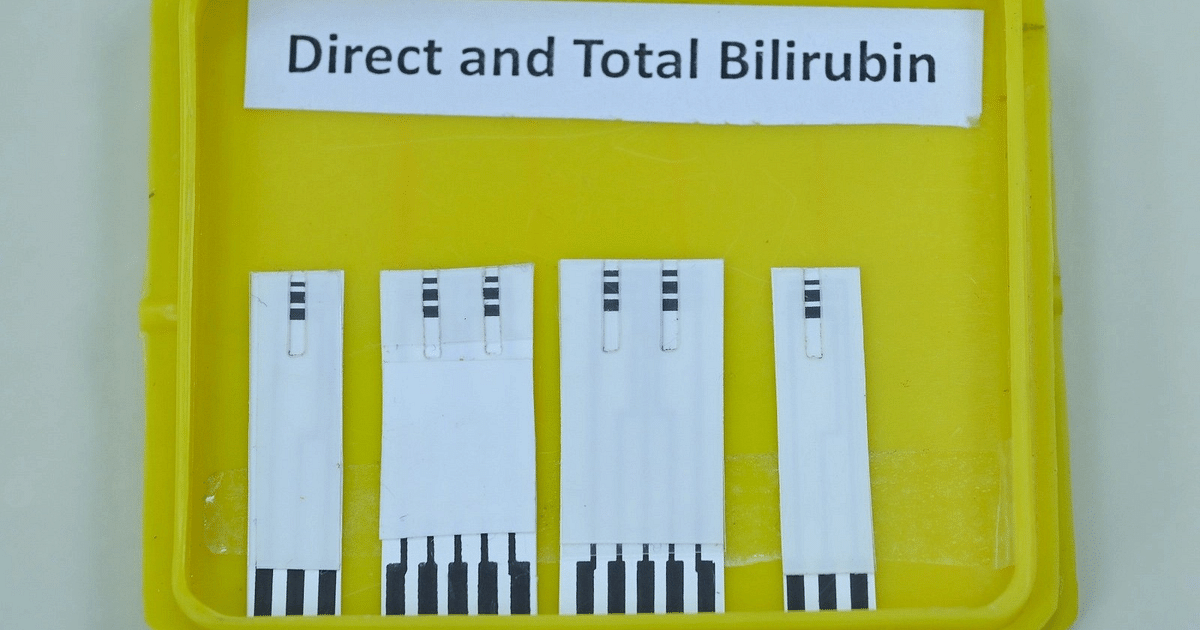Kanpur News: Indian Institute of Technology (IIT) Kanpur has created such a strip. Due to which, now three ml of blood will not have to be removed from the body of a newborn or any person to test for jaundice, nor will there be a long wait for the report.
Only one drop will be enough for testing
On this new strip, only one drop of blood can be tested. And the report of jaundice will be known within a minute. The strip will report the direct and total amount of bilirubin in human blood with just one drop.
World’s first cheapest strip
Director of IIT Kanpur, Prof. Abhay Karandikar has described this strip as a major achievement in the medical field. He has claimed that this is the first cheapest strip in the world, in which the test can be done with just one drop. This strip will be available in the market by April 2024. For this, IIT Kanpur has given license to Hyderabad company Sensa Core Medical Instrumentation Private Limited.
Enzymatic electrochemical sensing strip is very special
The team of scientists in the field of medicine at IIT Kanpur is continuously researching and developing new technologies. In this context, senior scientist of the Department of Chemical Engineering at the National Center for Flexible Electronics, Prof. Siddharth Panda and Dr. Nishant Verma have got a big success. This time scientists have developed a non-enzymatic electrochemical sensing strip.
The process of detecting bilirubin level in blood becomes easier
Professor Abhay Karandikar, Director of the Institute, said that the inclusion of this unique five electrode configuration enables simultaneous detection of direct and total bilirubin on a single strip. According to Professor Abhay Karandikar, the priority of IIT Kanpur has been to develop effective point-of-care technologies to enrich the health care system. This new sensor simplifies the process of detecting bilirubin levels in the blood.
What is bilirubin in human body
This will revolutionize the processes used to detect certain health conditions. The inclusion of this unique five-electrode configuration will allow simultaneous detection of direct and total bilirubin on the same strip. In this regard, through MoU with Sensa Core Medical Instrumentation Private Limited, it will help in meeting the needs of the healthcare sector along with effective marketing of this invention for better utility of all.
This non-enzymatic electrochemical sensor is specifically designed to accurately detect bilirubin levels in clinical samples. Bilirubin is a pigment in human blood, knowing its level can help in diagnosing some health related problems. This includes the condition of jaundice in newborns.
80 percent of newborns suffer from jaundice
Jaundice affects about 60 percent of people and 80 percent of newborns in India. Jaundice affects about 60 percent of full-term and 80 percent of premature newborns in the country with a mortality rate of 7.3 per 1,000 live births. Traditional methods of detection have limited limitations. In comparison, this sensor from IIT Kanpur is not only portable and economical, but can also directly analyze blood samples without preliminary processing.
Testing will be possible with very new technology, treatment will be facilitated
Pro. Siddharth Panda said that this sensor is expected to be used in bedside testing, clinical laboratories and even health check-up centers. This sensor incorporates a unique five-electrode configuration, which facilitates simultaneous detection of direct and total bilirubin on a single strip. This sensor incorporates a novel material called a ‘trimetallic nanocomposite-based catalyst’, which can effectively detect bilirubin regardless of the presence of other components in the sample.
He said that in simple words this innovative technology is an advanced device that will help doctors to quickly and accurately measure bilirubin in human blood, thereby making the diagnosis of certain medical conditions easier. Talking about jaundice in newborns, usually up to three ml of blood has to be taken from their body to test it. Which is painful for the parents, family or even the doctor. Seeing this, this research was started. Now it will be possible to diagnose jaundice with just one drop.

